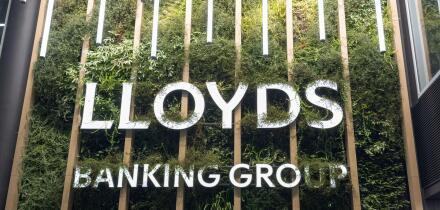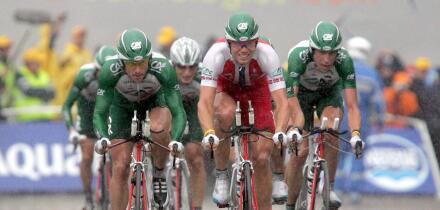Europe's primary bond markets sprung back to life on Monday after the French parliamentary election on Sunday resulted, as expected, in a hung parliament. Even the surprising part of the result — the far left winning more votes than the far right — was not enough to stop a French insurer bringing a deeply subordinated French deal to market or OAT yields moving lower.
France held its run-off elections on Sunday. They were seen as a crucial vote in the direction of politics in the heart of Europe after the right wing National Rally surged ahead with a third of the votes in the first round on June 30.
With all votes counted, the National Rally has 143 seats in parliament, the left wing New Popular Front 182 and incumbent president Emmanuelle Macron’s Ensemble party 168 seats.
Other parties make up the remaining 84 seats.
The yield on the 10 year OAT bounced around in the first 10 minutes of trading but by 9:08am London, the debt was bid at 3.186%, after opening at 3.2%.
The iTraxx Europe Main opened 2bp inside Friday’s close at 52bp, the Crossover opened at 289bp after closing last week at 297bp, and the Senior Financials opened 3bp tighter than last week’s close at 109bp.
“I’m surprised the market has not reacted more to be honest,” said one Frankfurt-based FIG banker. “Markets do not like uncertainty and there is still much uncertainty about the fiscal landscape of France. Then again, you could say that we’ve been here for a while now.”
The 10 year OAT spread over Germany narrowed by 0.7bp to 63.5bp on Monday morning having peaked at 85bp on June 28.
A Paris-based syndicate banker was more sanguine. “While it’s not a great outcome, it’s the best outcome we could have hoped for,” he said. “This impasse means we lack clarity. But it also means that a political party is unlikely to push through an ambitious fiscal expansionary policy."
Primary ablaze
Primary market reaction was far better than expected on Monday's open, with borrowers of all stripes looking to print debt.
“Monday was [meant to be] the monitoring day,” said a FIG syndicate banker. “See where the futures and indices point early in the morning, and decide on an early go call or let it all settle and then go on Tuesday. But that was risky because more issuers could choose to print then and the traffic will get harder to fight for attention.”
In the rates market, which is often the most clearly hindered in the short term by political risk because the debt there trades so closely to sovereign yields, Japan Bank for International Cooperation has mandated for a dollar trade. The European Union is also expected to mandate for a deal on Monday.
“The market feels sort of more balanced and the tail risk is more or less eliminated for now, and we expect a pretty composed market,” said a senior SSA banker in Paris, who added that political risk had kept SSA volumes muted for the last three weeks.
“We are expecting some decent volume this week, and for the EU to come through quite quickly,” he added. “Away from the EU, we have a few projects in the air, and we’ll know about them soon. It’s generally positive out there. There was a bit of uncertainty but the extreme risk has been taken out.”
Credit rolls out
In the financial institutions market, French insurance company Groupama announced it was commencing a series of investor meetings ahead of its debut restricted tier one (RT1) offering.
“The story goes that if you want to reload on risk, why not go with the highest beta you can?” said a FIG syndicate head away from the deal. “Let’s not forget we have had the strong technical factor of not much FIG or corporate deals for the past three weeks.”
Expectations among FIG bankers are that more deals across the capital structure are expected to be launched this week.
Italy’s Cassa Depositi e Prestiti, rated Baa3/BBB/BBB, is looking to sell a euro benchmark due July 2031 trade, while compatriot car hire company Leasys, rated A- with Fitch, is out with a €500m no-grow October 2027 deal.
Elsewhere in IG corporates, the US’s Toyota Motor Credit Corporation, rated A1/A+/A+, is looking to sell a July 2031 euro benchmark sized deal.
“Everyone was just relieved that nothing extreme happened,” said a corporate syndicate banker in London. “The make-up of the hung parliament is a bit of a curveball but will it really affect anything? Probably not. They’re all going to be fighting too much among themselves to make anything happen.”
Bankers said similar about the UK election last week. The vast Labour majority was priced in, so the make-up of other parties in parliament did not mean anything for the bond markets.
German real estate company Aroundtown, which kicked off a furore in the hybrid market last year, also felt confident enough to mandate for a senior bond on Monday, underscoring the confidence among market participants that electoral disruption to bond markets is over for now.
Further afield, Estonia’s Eesti Energia is looking to sell a B1/B+ rated €400m no grow green perpetual non-call 5.25 year hybrid, suggesting that the market really is open to all types of structures.
Equities mixed
The equities market feels a bit less sanguine than the bond market, however. “Significant political uncertainty will likely remain,” in France after Sunday’s news, yet the expectation is that in the short-term, “markets may view the centrist parties' stronger-than-expected performance as positive”, said an equities analyst.
Moreover, corporate blackout periods and a usual summer lull in July and August have made market participants see political uncertainty as coming at a relatively good time in France.
“This happened pretty much as we are going into blackout and into the summer break, so I think the good thing with these elections is that the second half wasn't really an option for many issuers anyways,” said an equity capital markets banker in Paris.
An asset manager in Paris said that “despite less than 20% of CAC40 profits being generated in France, it’s possible that asset allocations to France will be permanently reduced.
The CAC40 fell at the open on Monday morning, but then rose 0.58% by 11:30 in Paris.







